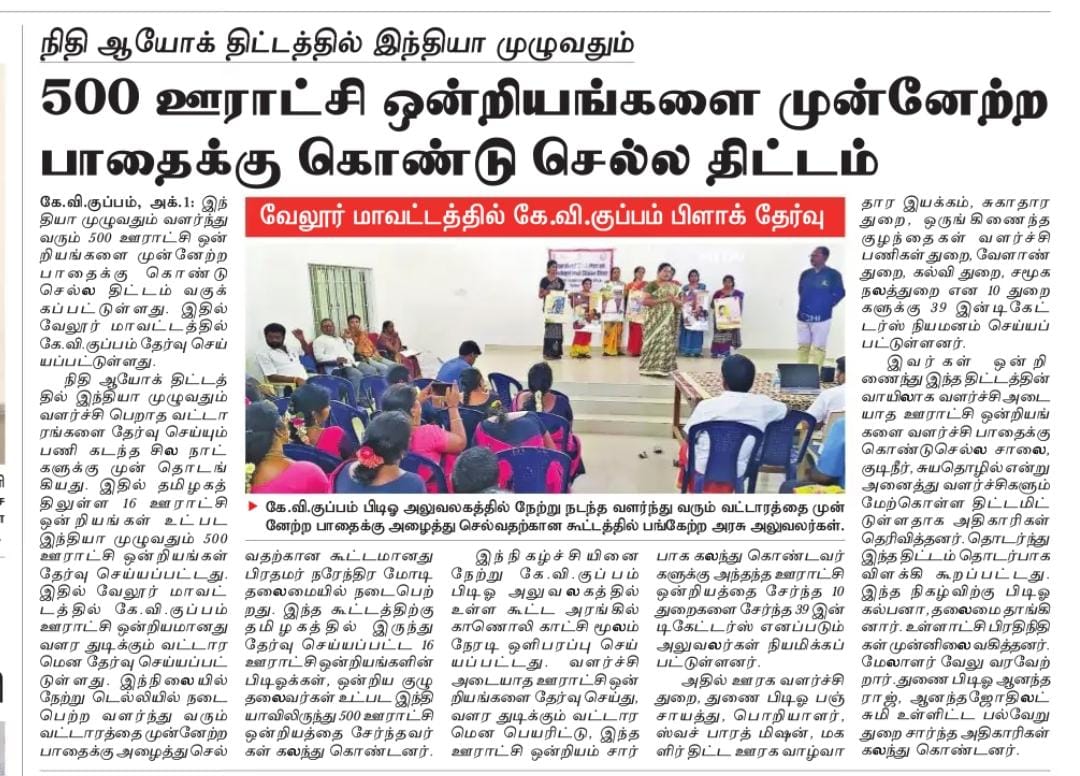
& District Planning
Rural Development &
District Planning
Core Functions
The Vertical formulates innovative programs and policies tailored to the Rural Development and allied sectors, addressing emerging challenges while capitalizing on opportunities. It also provides inputs and suggestions on key policy decisions to the Government of Tamil Nadu.
As a Nodal Point for Development Programs
The Rural Development & District Planning Vertical is a crucial nodal point which supports and monitors the Government of Tamil Nadu’s programs for inclusive and balanced growth and development. These initiatives aim to ensure equitable progress across different regions of the state, fostering economic, social, and infrastructural development and growth in a balanced manner. These programs are implemented and monitored:
- State Balanced Growth Fund (SBGF)
- Focus Blocks Development Program (FBDP)
- Aspirational District Program, and
- Aspirational Block Program
Research & Knowledge Sharing
The Vertical organizes workshops that bring together key stakeholders and experts in the domains related to Rural Development, Transformation, Housing, and Women Development.
Sectoral Departments
This Vertical coordinates with the following sectoral department and their line departments:
Rural Development & Panchayat Raj Department
- Rural Development and Panchayat Raj
- Tamil Nadu Corporation for Development of Women
The vertical also coordinates with related sectoral Institutions like,
- Tamil Nadu State Institute of Rural Development and Panchayat Raj
- Tamil Nadu Regional Institute of Rural Development & Panchayat Raj
Assessments and Studies
Impact of Rural Housing Programme (CM Solar Powered Greenhouse Scheme & Indra Aawas Yojana) implemented in addressing rural poverty and women empowerment
Housing is one of the basic needs of civilised society. It assumes greater significance in terms of security, self-esteem, social status, cultural identity, satisfaction and achievement. Like other basic needs, the need for housing Read More
The cost escalation of construction materials and labour expenses make it difficult for people to meet the housing needs. As a result, the number of shelterless households increases year after year. According to the Working Group on Rural Housing in India for 12th Five Year Plan, 4.1 million households did not have houses. It has also been estimated that the total rural housing shortage for the period 2012-13 was 43.67 million.
In order to improve the housing status and the living conditions of the people, the IndraAwaasYojana (IAY) and Chief Minister Solar Powered Green House Scheme (CMSPGHS) are implemented in Tamil Nadu. Under these schemes, housing structures are designed and constructed for the needy people..
Study report on "Efficacy of drinking water supply sources and status of access to Piped Water Supply to Rural Habitations
Tamil Nadu, one of the progressive states in India occupies about 4% of the surface area of the nation. But Tamil Nadu possesses only 3 percent of available water resources in the country to meet the burgeoning fresh water demand by the various sectors. Read More
Tamil Nadu receives an average annual rainfall of 925 mm as against the national annual average rainfall of 1170 mm. Tamil Nadu is therefore a water deficit state having high dependability on North East monsoon as well as south West Monsoon for meeting the fresh water resources demand for irrigation, drinking, domestic and other uses including for Industry. Therefore the water resources conservation and fulfilling the constitutional “Right to Live” by providing access to drinking water to the households always remain a top priority for the State Government. The access of piped water supply to individual households in village panchayats and rural habitations depend on many factors such as financial resources, sustainable water source, fee paid by individual households to get access to piped water supply. Habitants in rural habitations. face issues related to access of piped water supply provided by the village panchayats. Many Government schemes and fund allocation were utilised to ensure 100% coverage of piped water supply in rural habitations. Under these circumstances, an in-depth and integrated study was conducted and prepared a report on Efficacy of Access to Piped water supply in Rural Habitations and Source sustainability.
Workshops
Piped Water Supply within the Household
The State Planning Commission conducted this workshop dedicated to bolstering drinking water sources in rural areas and ensuring piped water access to households. Discussions covered the roles of key entities like the Tamil Nadu Water Supply and Drainage Board, Rural Development Department, and Panchayat Presidents in maintaining and conserving water systems. This workshop addressed crucial aspects of feasibility, availability, affordability, accessibility, and policy frameworks related to rural piped water supply. Read More
Decentralised Planning using Plan Plus
In Tamil Nadu, District Planning Committees (DPCs) play a crucial role in reviewing and consolidating plans across districts. Collaborative efforts, including partnerships with organizations like UNICEF, enhance the capacity of local officials in collecting and inputting data for need-based planning. This collaboration promotes communication among stakeholders, including District Administration, Line departments, Planning Committees, and Local Bodies. This workshop supported stakeholders in implementing Decentralized Planning Read More
Open Defecation-Free Tamil Nadu
The State Planning Commission organized a workshop on achieving Open Defecation Free status in the State. Emphasizing strategies from past experiences, exploring technology options, and engaging local leaders, the workshop featured insights from a study by Anna University’s Department of Media Sciences, conducted under UNICEF and the Department of Rural Development & Panchayat Raj. The study assessed the status of previously constructed household latrines, identified failure causes, and proposed future strategies. Read More
Ongoing Works
Current Studies/Assessments of Schemes
- Evaluation Study on piped drinking water connection to every household
- Intergenerational mobility across social groups in Tamil Nadu
Gallery
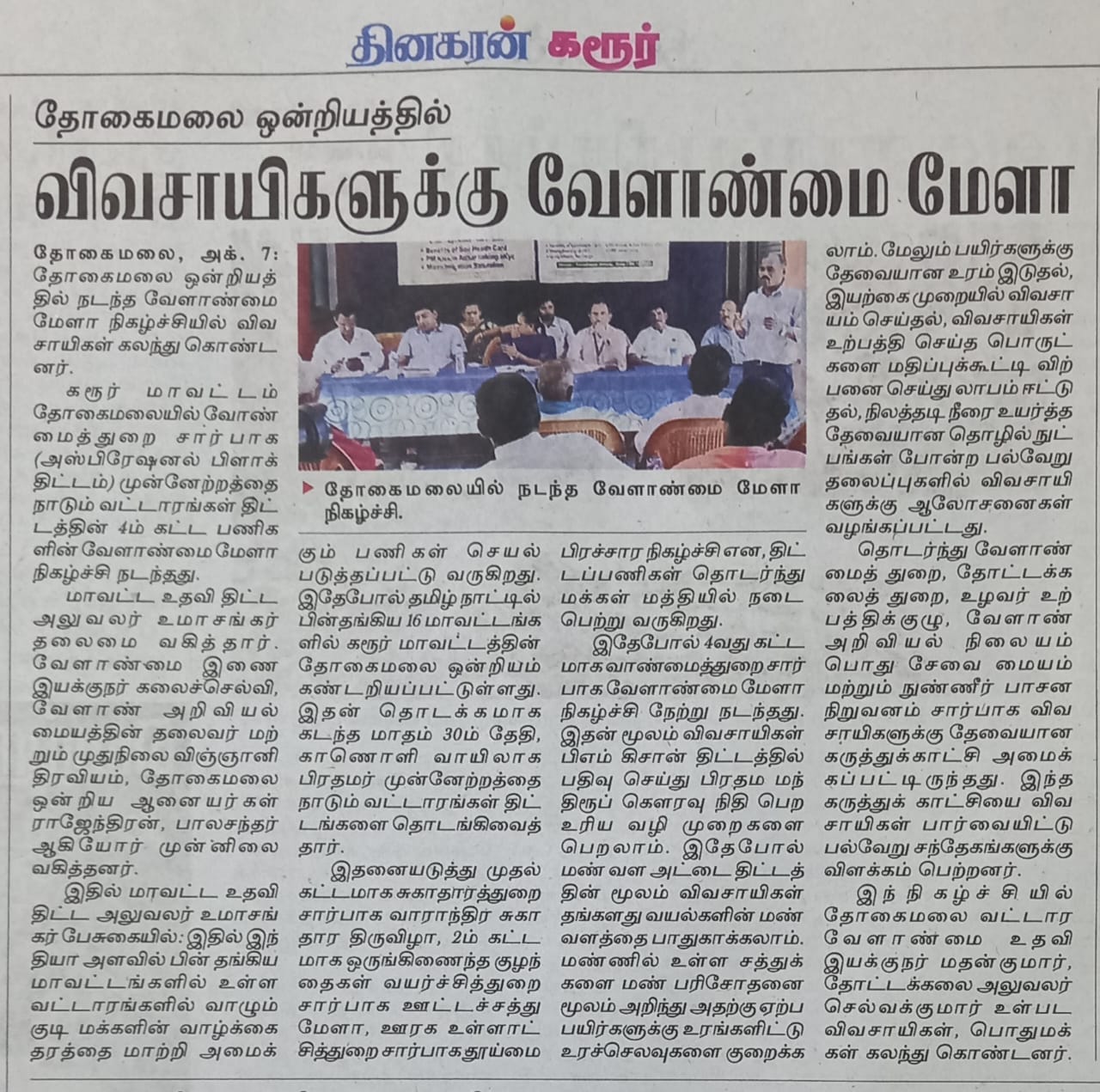
Agriculture Mela as part of the Aspirational Block Programme
Agriculture Mela as part of the Aspirational Block Programme
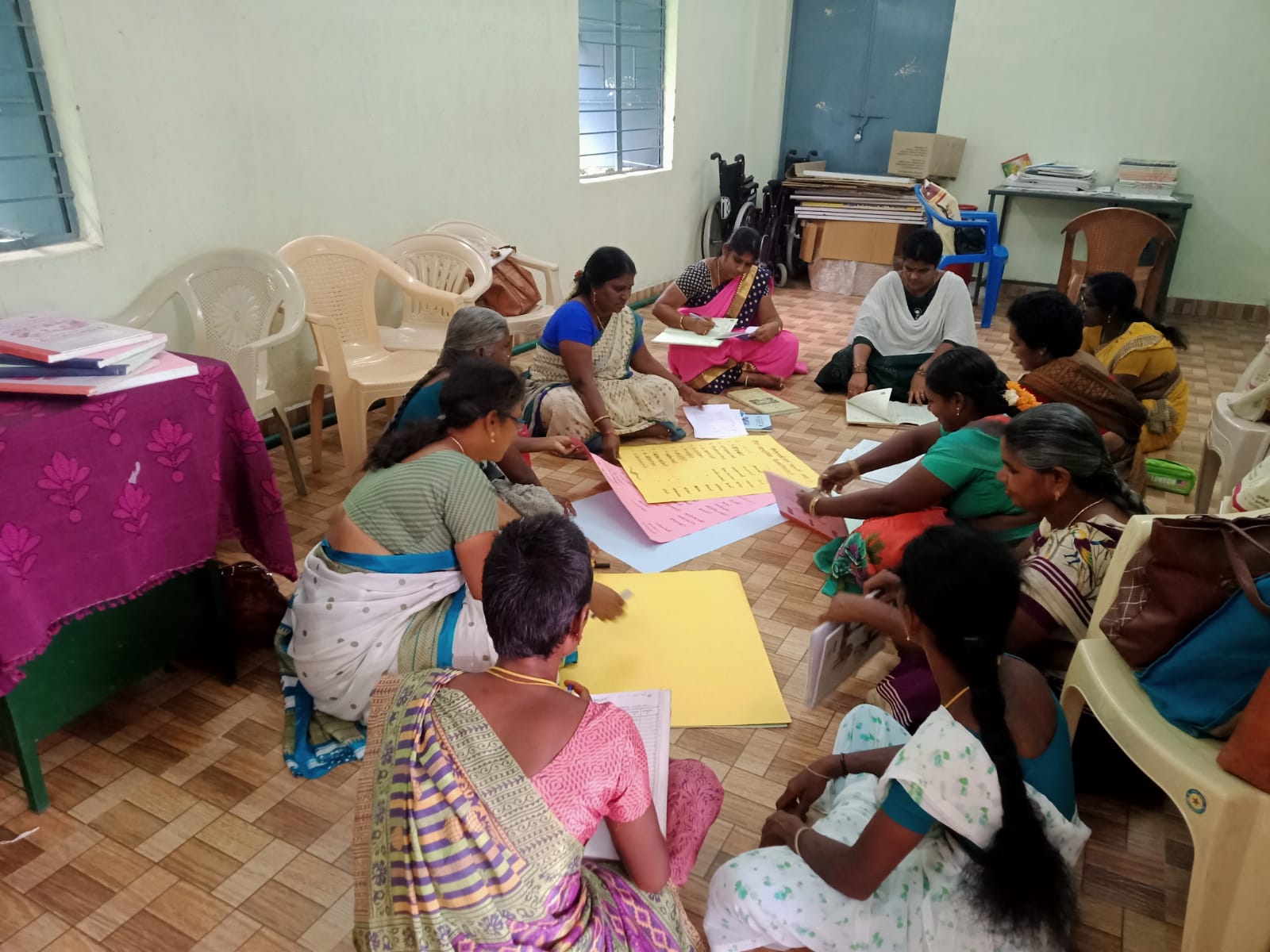
Awareness Programme on Livelihood Financial Literacy
Awareness Programme on Livelihood Financial Literacy
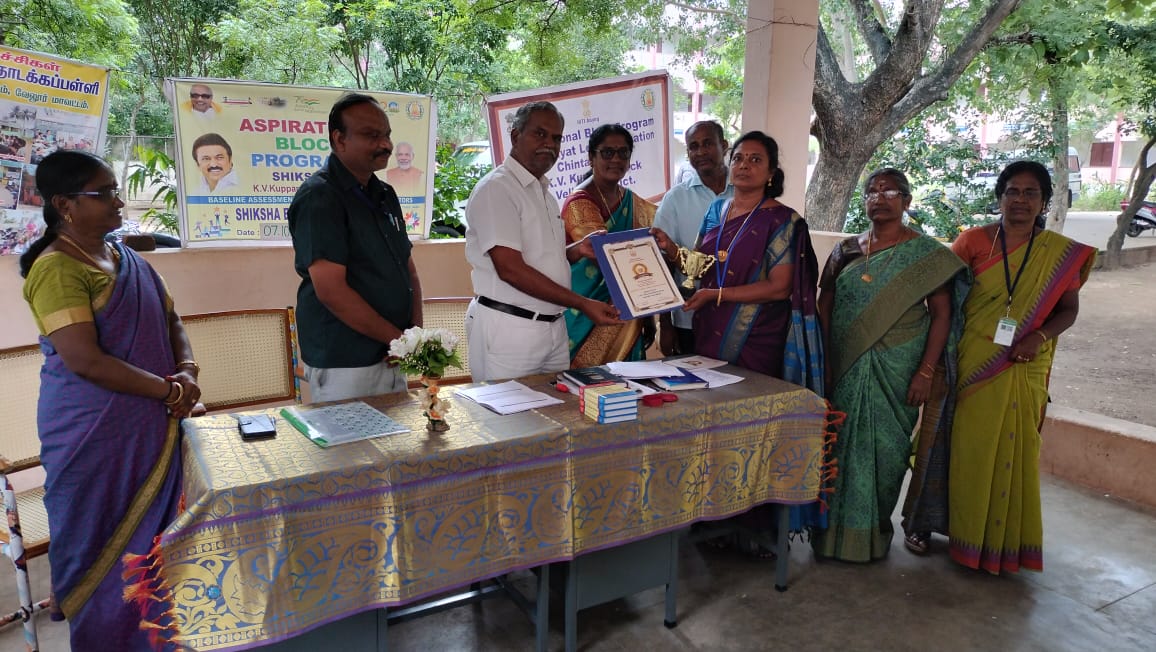
Recognising teaching excellence
Recognising teaching excellence
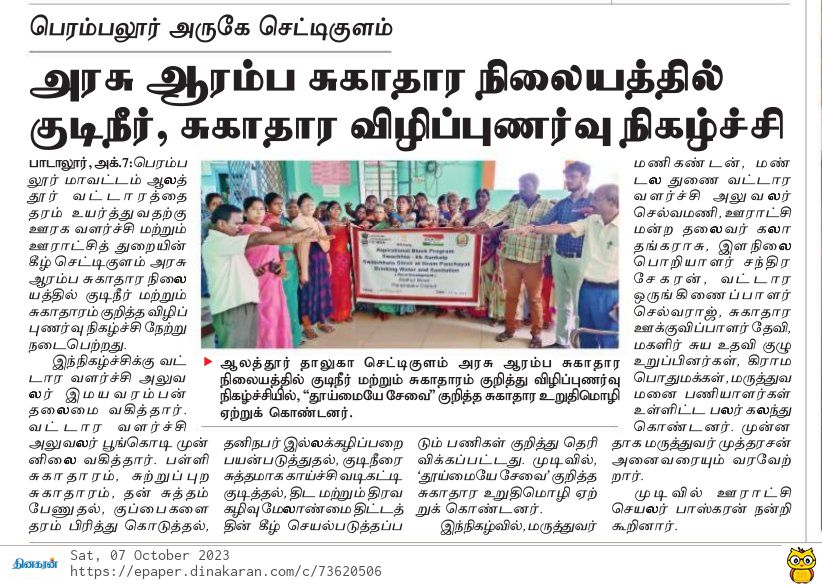
Clean Drinking Water Awareness Programme
Clean Drinking Water Awareness Programme
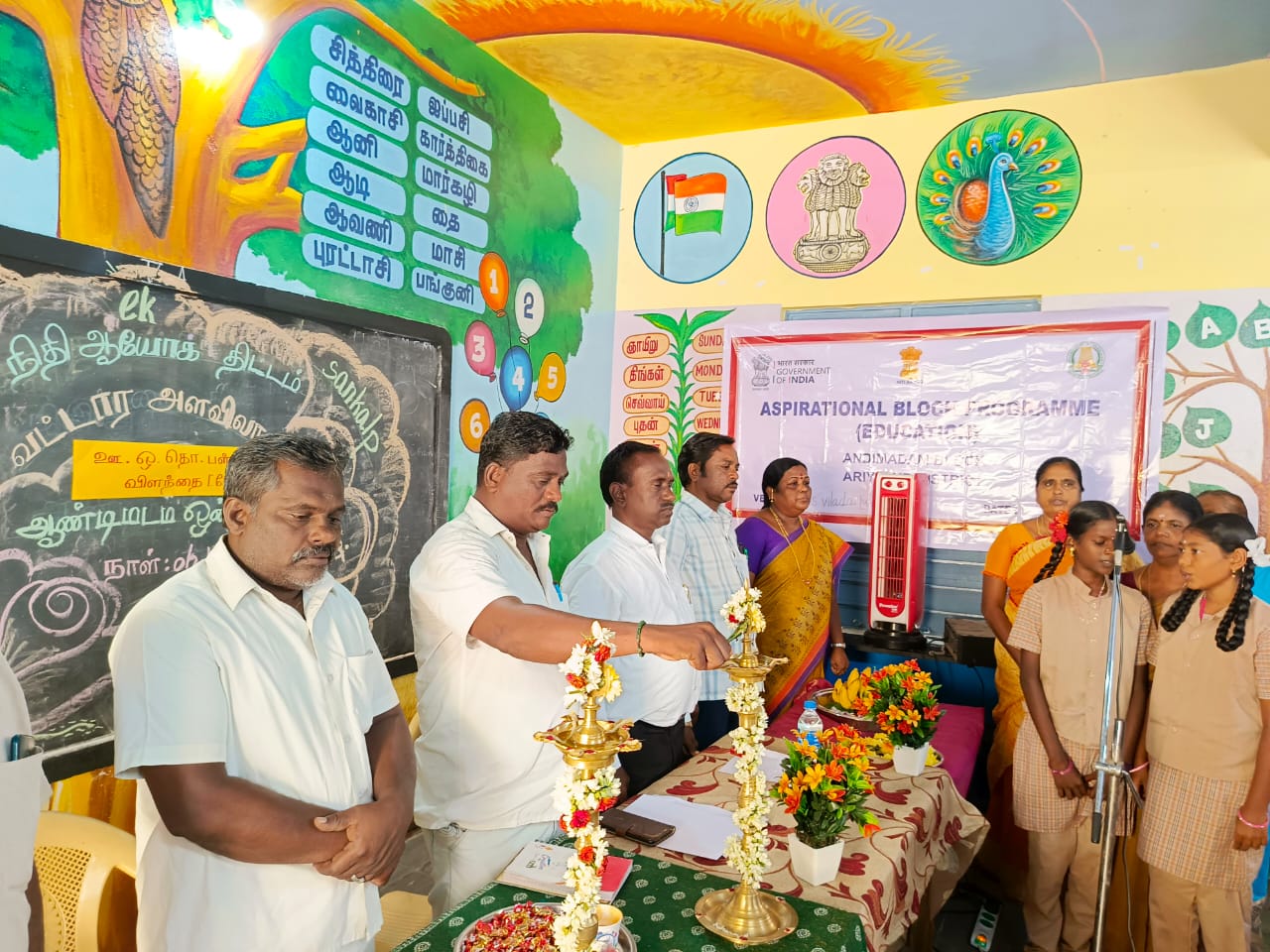
Girl Child Education Awareness Programme
Girl Child Education Awareness Programme
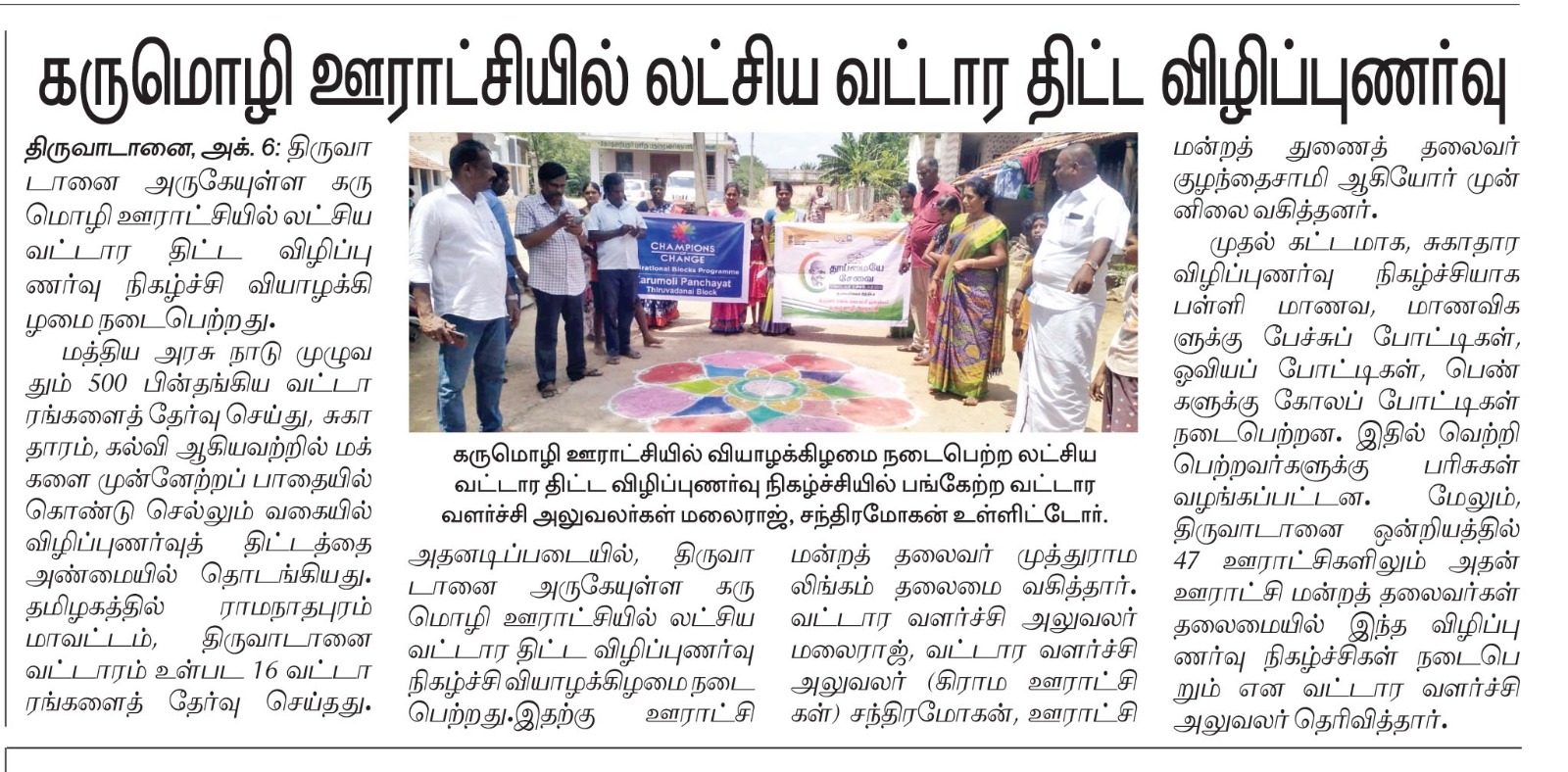
Health Awareness Campaign
Health Awareness Campaign
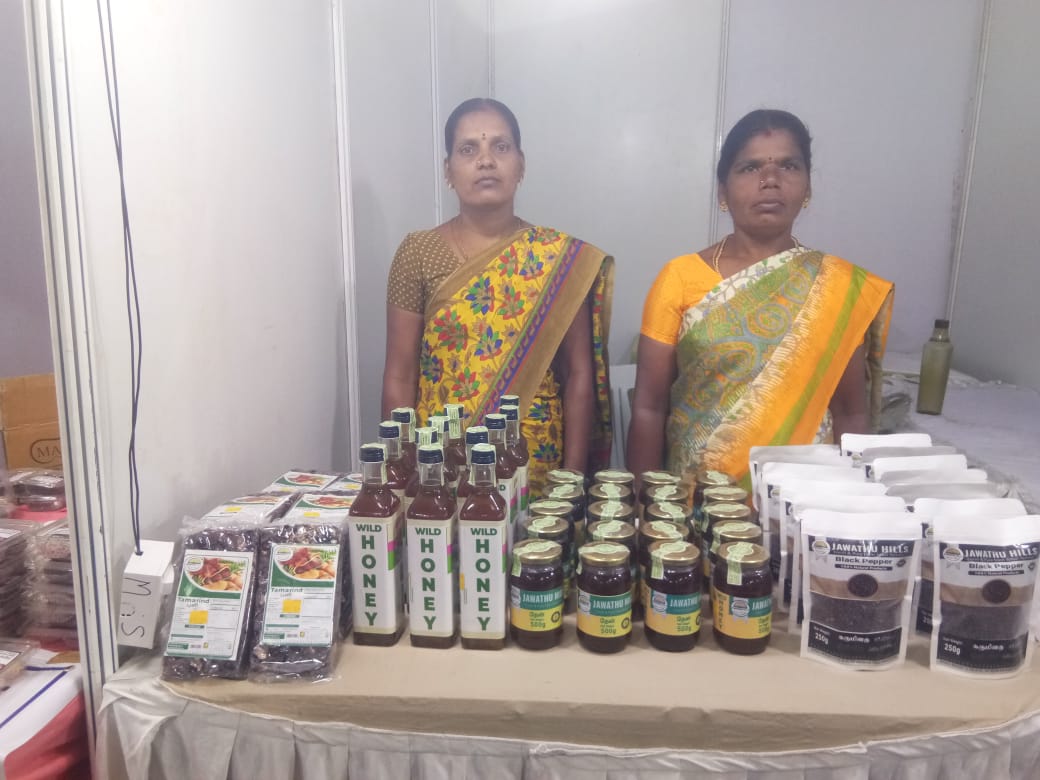
Livelihood - Products Exhibition
Livelihood - Products Exhibition
